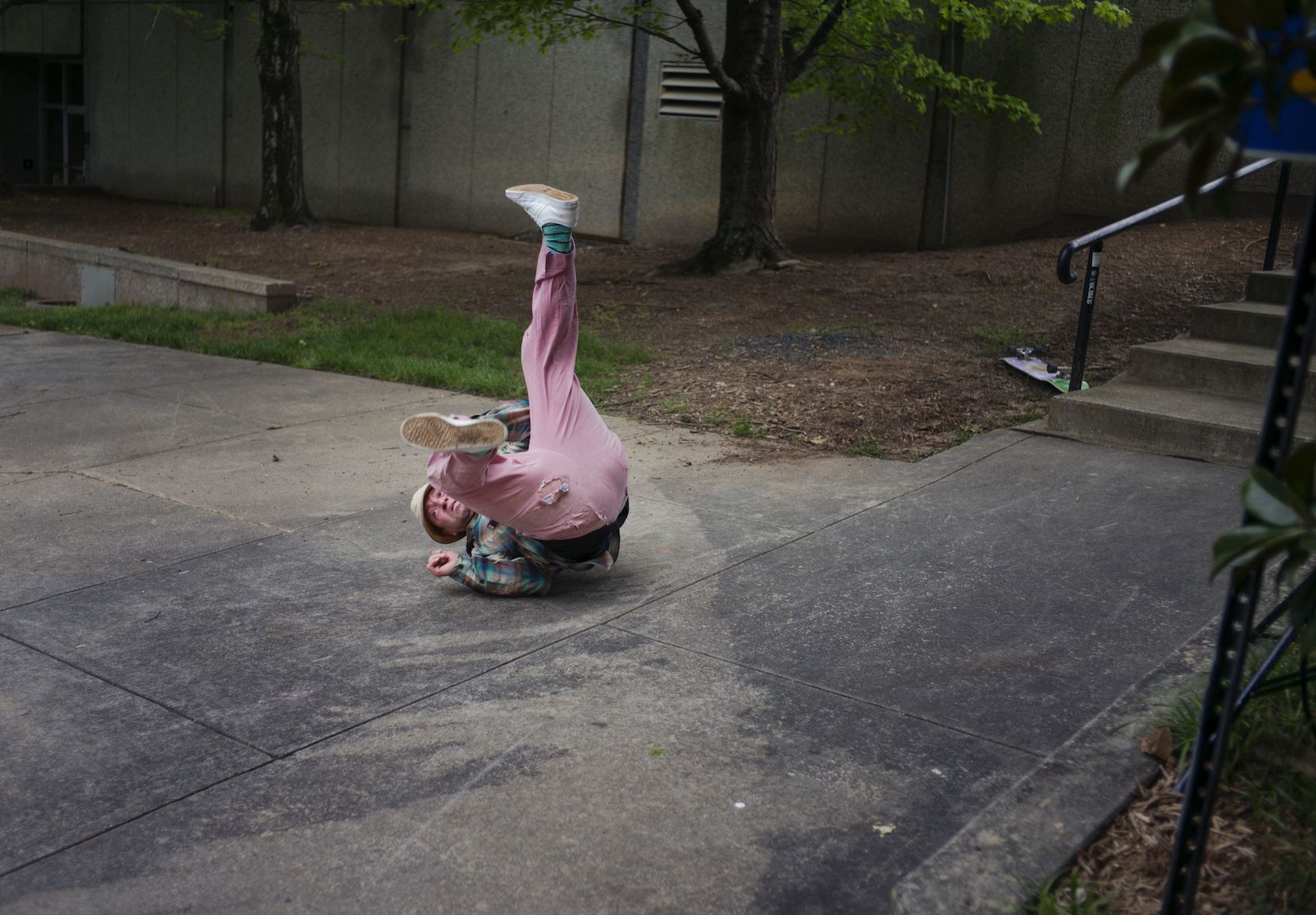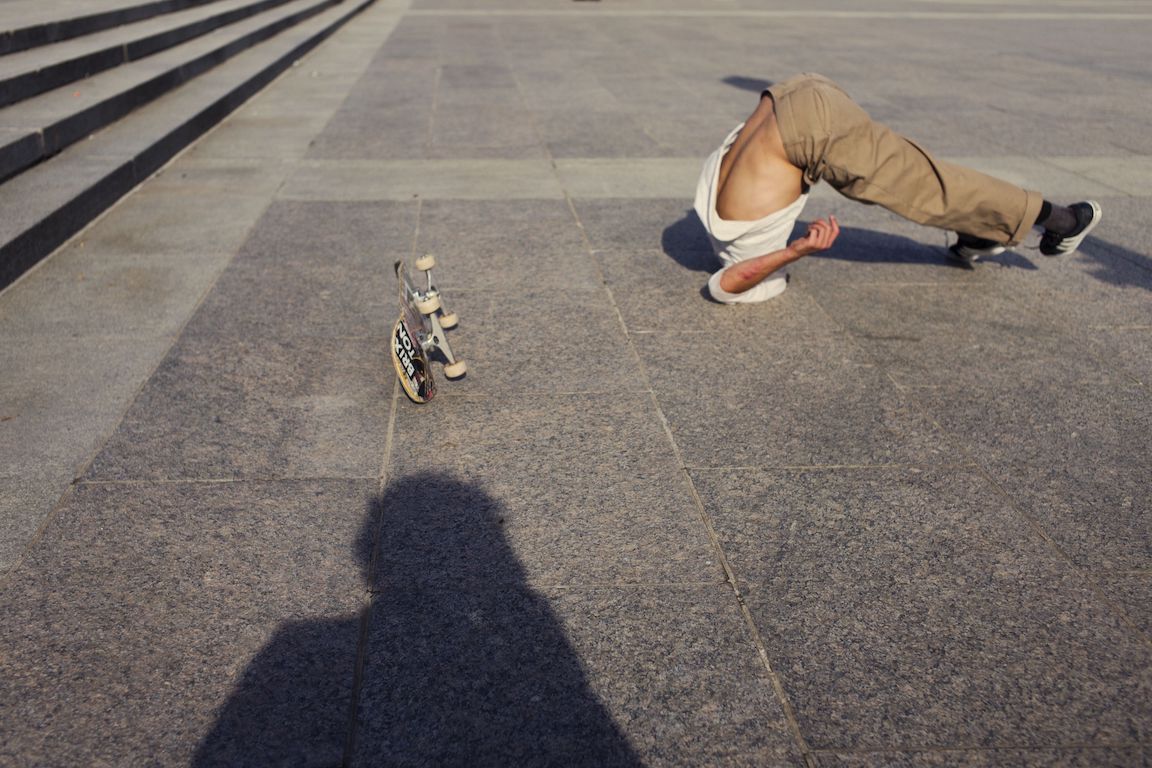Now Entering the Age of Anger: PANKAJ MISHRA
|Jack Self

Populist Resentment Has Upended Politics. But Will It Kill Modernity?
As far-right ideologies continue to enter into the mainstream, we are left dumbfounded by a movement that appears utterly irrational. Racism and nationalism run counter to the very definition of modernity, and yet, they have now attained higher and higher footholds in contemporary society.
In his book Age of Anger: A History of the Present, Pankaj Mishra concludes that this political regression is caused by modernity itself. Citing his native India as a model for how democracy can slide into authoritarianism, Mishra sees parallel phenomena in the West as a natural symptom of the current order. He argues that modern society never delivered on its founding message of equality and democracy. Today’s politics of rage, therefore, are the backlash of that broken promise.
Jack Self spoke with Mishra to define the Age of Anger and what comes after modernity.

Jack Self: You have argued that the era we live in is largely defined by resentment. Where does this resentment come from?
Pankaj Mishra: Well, we embarked on a very radical project back in the 18th century. We started to fantasize about a way of being in the world that human beings previously had never undertaken on such a massive scale. It begins with the promise of freedom and equality—the promise of individualism, of liberation from the shackles of traditional authority.
First in one part of the world—Western Europe—and then that promise is generalized around the world through political and economic processes. But periodically over the last 200 years, we have seen eruptions of rage and frustration from people who feel that those promises are being betrayed by the ruling classes. Often these are people who are dispossessed. They are people who are uprooted from rural areas and make a very big journey to the modern metropolis to find the promise of dignity, of security, of stability. All of these things are not realized. And so in many countries around the world, from the 19th century onwards, we see large numbers of people turning to demagogues or to various political movements opposed to the establishment.
These offer them precisely what the ruling classes have failed to deliver, which is equality and freedom. All of the promises of liberal modernity are then taken over by the far right. When we look at the present moment, we find that those promises have become more extravagant in the last 20 to 30 years. It’s not just the equality and freedom that we are really talking about here. We are also talking about prosperity.
It’s the idea that everyone can make it, that individual entrepreneurs—depending on their resources, their merits, their talents, their energies—can break through all kinds of barriers and become prosperous after competing in the marketplace with other individuals. At the same time—and this is a well-established fact—inequality has grown. So as the promise of equality has grown more seductive, inequality has become structurally entrenched. And what we are seeing today is the explosion of this resentment, which naturally has always benefitted far-right movements and demagogues.
How intolerant does society have to be before those who promote tolerance decide to reject the intolerant? You’ve suggested that we still have some ways to go before the situation gets bad enough.
I feel it depends a great deal on the strength of the institutions that are in place which can act as a check. We have already seen that in the United States, which has checked the arbitrary whims of a figure like Donald Trump. He’s obviously been elected to the White House with the help of fake news and there’s a large number of people who are made to believe in certain myths that he floats by the various media that still support him. But at the same time, I think there are strong democratic institutions. There’s the independent judiciary. And a large part of the press is still very active and free of any bias.
I feel that these institutions are strong enough to contain the damage caused by a figure like Trump. However, you can’t say that about India, for instance, where institutions have always been extremely weak and prone to very rapid transformations by whoever is in charge as it happens. I feel that things in India are going to get much worse before they have the chance to get better.
We have just passed the 70th anniversary since the separation of India and Pakistan. And you have a very personal approach to the situation within India and the rise of fundamentalism that is occurring there.
Everything I’ve written has emerged from this experience of India in the last 20 years. It has also emerged from an experience of crying wolf for many years and saying look, “If you don’t reckon with what’s happening today—and I was writing this in 2000—we are going to end up with a figure like Modi. We are going to have a neo-fascistic regime in the country.” And it has brought me no consolation to see many of these predictions come true. But it has also alerted me to the role complacency plays in public life. India is a country that was once a great democracy—a striking exception in post-colonial Asia and Africa—and is now a country that is associated with a lynch mob encouraged by the government. So really, we have experienced a rapid degeneration of political life, one much more shocking in many ways than the advent of Trump in the United States.
In the long run, do you see what’s happening in our era as necessary and unfortunate growing pains in the process towards a new type of global culture? Or is this the last unwinding of the civilization?
We may be in the middle or at the beginning of a long transition to some other mode of being. The project of modernity has become hugely risky. Now, it’s possible that countries will fight destructive wars with nuclear weapons. We will live long enough to see those calamities happen. What happens next? Nobody knows. But there’s definitely a sense that we are in some kind of an endgame.
One of the themes that run throughout your book The Age of Anger is this theory of anomie—let’s say a lack of authority and a lack of clear moral guidance for the individual. So what’s also being offered by demagogues is often a structure in which the individual can understand themselves in relationship to a very kind of comfortable social narrative.
Absolutely. We are not just looking at economic inequality here. I don’t think we will understand a lot of the psychological symptoms today if we don’t understand that we did really embark on an extraordinary project back in the late 18th century, which was to live without the comfort and assurance of transcendental authority. As a result, many people today feel deeply disoriented and are very drawn to the fantasies of community and identity that are offered by Internet communities or fundamentalist groups. There are all kinds of people vending assurances and consolations. Fake news is also a kind of consolation. It helps you to make sense of the world. So we are really looking at a kind of splintering of various ideas that we had agreed upon back in the late 18th century, that our society will be based upon a degree of consensus. We will not invest in transcendental authority. We won’t invest in the monarch. And we will decide amongst ourselves. And that there will be a social contract. But if your society fragments to the degree that it has today, then it’s very difficult to work up consensus. That is a much more serious phenomenon than the superficial one of economic inequality.
What room does that leave for a figure like Pope Francis?
Pope Francis happens to be the most prominent representative of a major religious tradition. And he is a very articulate figure, a very intelligent diagnostician of many of the problems we face in the world today. And I feel like we increasingly need the resources that a figure like Pope Francis is offering—resources that are not generated by the Enlightenment. Our frameworks of analysis and interpretation need to be expanded. Pope Francis makes us aware of longer, deeper, and philosophically more profound traditions than the ones we are accustomed to working with.
The core of Pope Francis’s doctrine leans very much towards the idea of community, which is not premised on modern ideas. And I wonder whether this is part of the cornerstone of a future that embraces non-individualism.
The humanist traditions in the West are primarily secular traditions, which invest too much in the human capacity to think for itself and to be in the world without too many ethical commitments to others. I think that is seriously in trouble right now. We know that human being is a deeply flawed and deeply unstable animal. This is something that religions and philosophies have known for a very long time. So exulting this figure, investing too much in his sense of possibility was always going to be a flawed project.

If we follow Nietzsche’s argument about the death of God, does that then mean that we have to revive God, bring it back to life, and resurrect it as a central figure in global society?
Someone like Dalai Lama says that we don’t actually need God. You can have an ethical existence without needing to believe in transcendental authority, or a figure who punishes you. Being charitable to others has its rewards in the world you live in. So I don’t think we need to bring back God. It’s too late anyway. I think the notion that there are certain ethical codes that exist and have to be followed remains a relevant notion. It wasn’t us who tried to do away with those ideas and live in the light of our own reason. And that project turned out to be a very complicated and tormented one. We have witnessed unprecedented events in the first half of the 21st century. What was it that gave full reign to the human capacity for violence? Those are questions that older traditions, philosophies, and religions have always struggled with.
Something I find remarkable is that you make an argument for the failure of modernity in two really different ways. One is very much a materialist argument, which is that it will not be possible to pursue ideas of infinite progress—that even if we reach that point, we will have to suffer extreme ecological disasters in the process. The second one you point to is a moral problem, in which modernity has failed to address the existential and metaphysical questions that preceded it: Who am I? What should I do with my life? What will happen to me at death? Many of the extreme right arguments try to deal with those questions in more or less convincing ways. On the materialist level, it seems impossible to save modernity. But do you think there is a way for modernity to resolve its moral quandaries?
I think modernity has always been balanced by some kind of countervailing current. Socialism to many people was a promise of justice and equality. It was also very importantly a promise of solidarity. Socialism tried to take over some of the ethical aspects of Christianity, offering a degree of compassion for the weak and the poor. For a long time, I think the ideas of socialism served as a kind of moderating influence on the harsher, more ruthless form of modernity. But we have systematically delegitimized ideas of socialism in the last three decades, just because regimes that called themselves Communists in Eastern Europe and Russia were societies that were essentially police states. So we have now had an extraordinary twist of thinking. All of the ideas that you mentioned—what should you be doing in the world, what is the meaning of life—well, it turns out the meaning of life is endless materialist progress and consumption.
There’s a younger generation that has been born after the collapse of the Soviet union, who don’t automatically associate Communism with Totalitarianism. In fact, it’s for very practical and pragmatic reasons. They understand that ownership of their own home and other conditions like this will be essentially impossible. And what they see then is the political benefit of cohabitation and sharing other types of resources. One could argue that the sharing economy—although at the moment it’s basically a way of extracting latent value from existing resources—could also offer a potential in the future to move towards the type of socialist utopia that were the vision of the 20th century. Do you take a more pessimistic view than that?
I take a deeply pessimistic view of the possibility of any new ideas emerging from the generation that’s now in power. But when I look at the younger generation, I become immediately very optimistic. This generation has had a very different experience of the world altogether. They’ve come to these ideas, which are recognizably socialist ideas, through a particular experience of injustice and insecurity. For the first time in the last 200 years, there’s a whole generation of people who confront the prospect that the future might be considerably worse than what their parents experienced. We have invested so much in the idea of progress, and here are all these young people facing a very uncertain future. They are now thinking of new ideas that every new generation should have done but was too lazy to do so.
I think it’s very much more likely that is was an accident rather than a deliberate attempt on their part.
People rarely become aware of the larger consequences unless there’s a crisis. It’s only really in a crisis of the kind that we have experienced almost continuously in the last decade—political crises, financial crises—that people focus their minds on what needs to be done. Most of us are content to live our lives and maintain a modicum of decency in our relations with other people. But at the same time, larger forces are at work—in the press, on social media—and individuals don’t really have much control over these forces. It’s only now that we have become aware of the role played by the media in creating a paranoia about immigration and terrorism. It manipulates the sensibilities of aggrieved people, who are wounded by economic and social inequalities. It makes them think it’s a particular group of people that are to blame, whether it’s the immigrants, or the refugees, or the Muslim community. These things get built up over time and create a milieu in which things like Brexit become possible, or a rise in hate crimes becomes possible.
You take on a view that we are headed towards an even more dramatic series of crises than the last decade.
It’s a view that I hold with a particular purpose. What we have seen so far in the post-1989 world is an almost a criminal degree of complacency and fantasy: the rising tide of globalization will lift all our boats and hundreds of millions of people will be lifted out of poverty. The people in powerful positions—in media, in business, in politics—have all been singing from the same score sheet, so we have all heard this deafening chorus for decades now. And the purpose of a book like mine is to say: “I’m really sorry, but these are all fantasies. This is not going to happen.” My role is to alert people to the fact they have been living through a state of ideological intoxication. If I’m on the side of pessimism—or even alarmism—in my book, it really is meant as a political act to tell people that they should wake up and confront the problems that lie ahead of us.
Age of Anger: A History of the Present is published by Farrar, Straus and Giroux (New York, 2017).
This article originally appeared in 032c Winter 2017/18 Issue “Berlin Kidz.”
Credits
- Text: Jack Self
- Photography: Sam Muller
